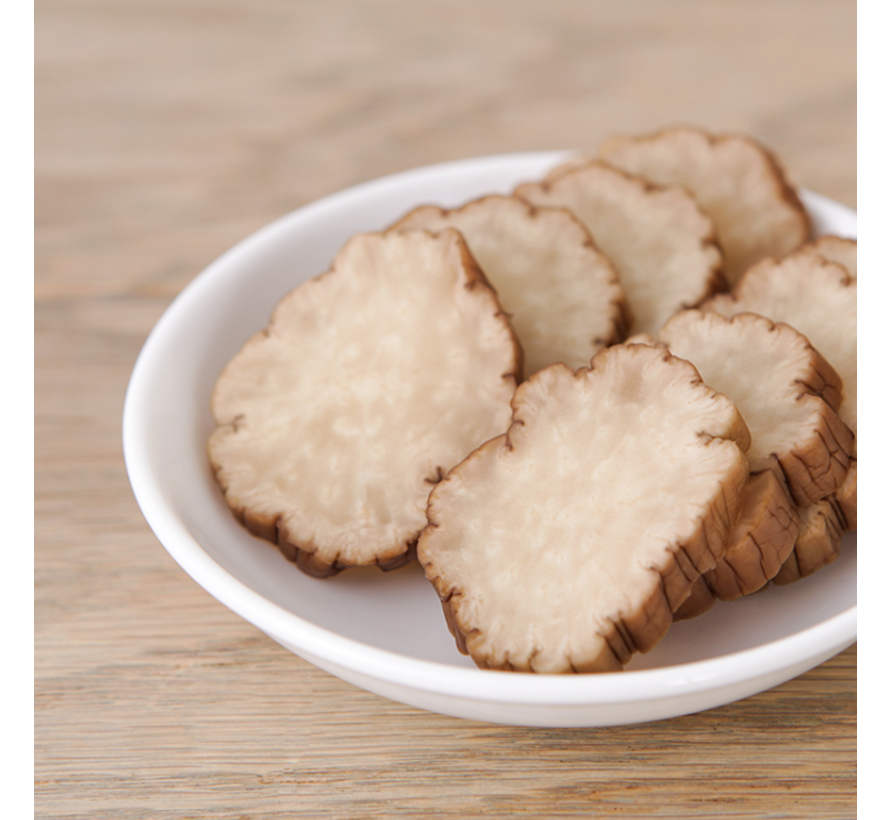Iburigakko is a Japanese radish called daikon, smoked and pickled, traditionally cultivated and prepared in the Akita region in northern Japan. In late October, the daikon is hand-picked and smoked for three days with oak wood, then pickled for over 50 days with sugar, salt, and rice bran. Adding beer to the marinade helps enhance the natural umami of the daikon radish and gives it its unique taste resulting in a crunchy and juicy umami side dish.
Sliced. Also available as a whole.
The history of Iburigakko
Iburigakko is a traditional pickled radish specific to the Ogachi region, characterized by its unique smoking process over an open hearth. Originating in the Muromachi Era, this method was born out of necessity due to Ogachi's climate, which made traditional sun-drying of radishes for pickling difficult. The heat and smoke from the hearth imparted a distinct flavor to the pickles, which lasted longer and tasted sweeter due to the cold climate. Initially prepared by hanging radishes over the hearth, the practice evolved over time.
However, with the advent of wood stoves around 1955, the traditional sunken hearths fell out of use, leading to a decline in the quality of Iburigakko and a loss of interest in its production due to changing dietary preferences influenced by urban trends. Nonetheless, around 1965, there was a resurgence of interest in Iburigakko, leading to efforts to revive the traditional method. The first owner of Ogachino Kimuraya built a smoking house to carefully smoke radishes over selected wood, preserving the authentic taste of Iburigakko.
After refining the process, the pickles were named "Iburigakko," combining the word "Iburi" meaning "smoked" with "gakko," the Akita dialect term for "pickles." The aroma and flavor of the pickles evoke memories of hearth fires and traditional rural life in Akita, reflecting the region's culture rooted in its natural surroundings. The simple and natural taste of Iburigakko is a testament to centuries of tradition, inviting consumers to experience the essence of Akita's mountains and fields through its flavors.






